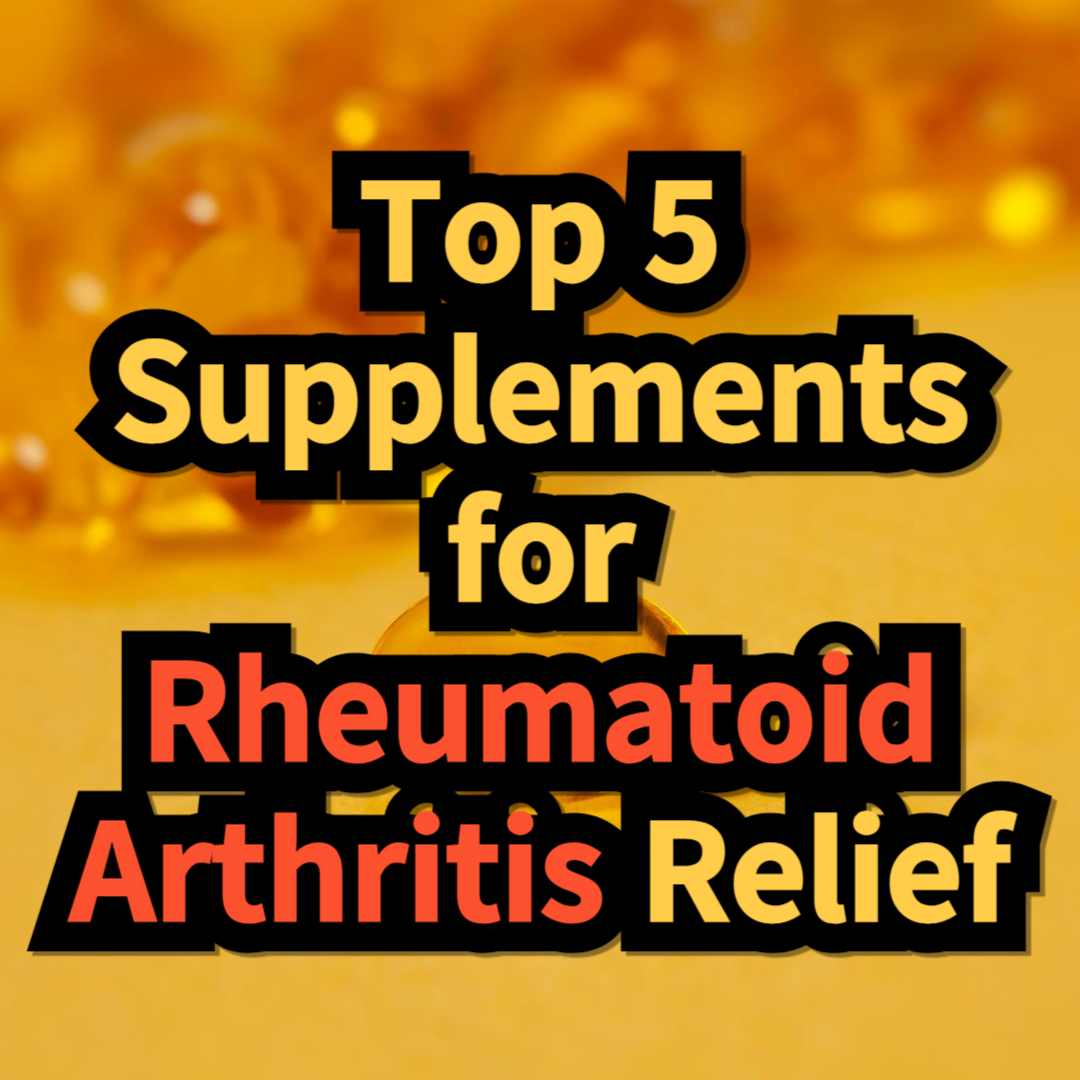Introduction
Rheumatoid arthritis (RA) is a chronic inflammatory disorder that primarily affects joints but can also impact other tissues and organs. Managing RA involves a combination of medications, lifestyle changes, and sometimes supplements. This blog post will explore the symptoms of RA at different stages, recommend five supplements that may help alleviate symptoms, and provide tips on diet and lifestyle changes to prevent the progression of RA.
Symptoms of Rheumatoid Arthritis
Early Stage RA:
In the early stages of RA, symptoms are often subtle and may include joint pain, stiffness, and swelling. These symptoms are usually more pronounced in the morning or after periods of inactivity. Inflammation begins in the synovium, the lining of the joints, causing discomfort and limited range of motion.
Moderate Stage RA:
As RA progresses to the moderate stage, the inflammation becomes more severe, leading to damage to the cartilage and bone. Symptoms include increased pain, swelling, and stiffness, as well as reduced mobility. Joint deformities may start to appear, and daily activities can become more challenging.
Severe Stage RA:
In the severe stage, the damage extends to the bones, causing significant pain and loss of function. The joints may become deformed, and muscle weakness can occur. This stage often results in severe disability, making it difficult to perform even simple tasks.
Recommended Supplements for RA Relief
1. Omega-3 Fatty Acids
- Ingredients: EPA and DHA
- Benefits: Omega-3 fatty acids have anti-inflammatory properties that can help reduce joint pain and stiffness in RA patients.
- Price: $20-$30 for a month’s supply
- Where to Buy: Available at most health food stores and online retailers
- How It Helps: Omega-3s reduce the production of inflammatory cytokines and prostaglandins, which are involved in the inflammatory process of RA.
2. Turmeric (Curcumin)
- Ingredients: Curcumin
- Benefits: Curcumin, the active ingredient in turmeric, has potent anti-inflammatory and antioxidant properties.
- Price: $15-$25 for a month’s supply
- Where to Buy: Health food stores, pharmacies, and online
- How It Helps: Curcumin inhibits inflammatory pathways and reduces the activity of enzymes that cause inflammation.
3. Vitamin D
- Ingredients: Vitamin D3
- Benefits: Vitamin D is essential for bone health and immune function. Many RA patients have low levels of vitamin D.
- Price: $10-$20 for a month’s supply
- Where to Buy: Pharmacies, health food stores, and online
- How It Helps: Vitamin D modulates the immune system and may help reduce the severity of RA symptoms.
4. Glucosamine and Chondroitin
- Ingredients: Glucosamine sulfate, Chondroitin sulfate
- Benefits: These supplements support joint health and may reduce pain and improve function in RA patients.
- Price: $30-$40 for a month’s supply
- Where to Buy: Health food stores, pharmacies, and online
- How It Helps: Glucosamine and chondroitin help maintain the integrity of cartilage and may have anti-inflammatory effects.
5. Boswellia Serrata (Frankincense)
- Ingredients: Boswellic acids
- Benefits: Boswellia has anti-inflammatory properties and may help reduce pain and improve joint function.
- Price: $25-$35 for a month’s supply
- Where to Buy: Health food stores and online
- How It Helps: Boswellic acids inhibit the production of inflammatory molecules, reducing inflammation and pain.
Preventing RA with Diet and Lifestyle
Anti-Inflammatory Diet:
- Foods to Include: Fruits, vegetables, whole grains, fatty fish (rich in omega-3s), nuts, and seeds.
- Foods to Avoid: Processed foods, red meat, refined sugars, and trans fats.
- Benefits: An anti-inflammatory diet can help reduce inflammation and improve overall health.
Regular Exercise:
- Types of Exercise: Low-impact activities such as swimming, walking, and yoga.
- Benefits: Exercise helps maintain joint flexibility, reduce pain, and improve mood and overall well-being.
Stress Management:
- Techniques: Meditation, deep breathing exercises, and mindfulness practices.
- Benefits: Managing stress can help reduce the frequency and severity of RA flare-ups.
Conclusion
Managing rheumatoid arthritis requires a comprehensive approach that includes medications, supplements, diet, and lifestyle changes. By understanding the symptoms at different stages and incorporating beneficial supplements and healthy habits, you can improve your quality of life and potentially slow the progression of RA. Always consult with your healthcare provider before starting any new supplement or making significant changes to your diet or exercise routine.
Best Vitamins for Diabetes Management: A Comprehensive Guide (soomarket.com)
